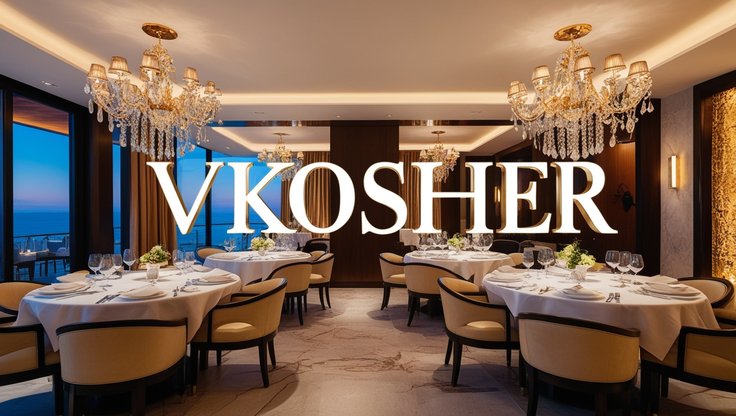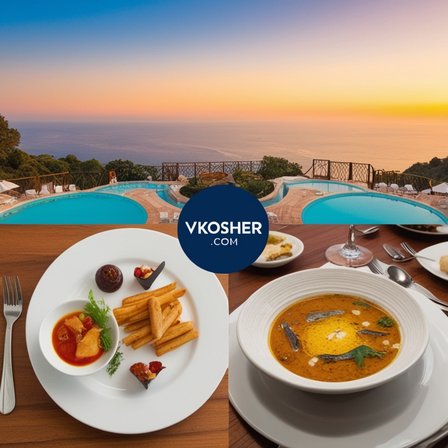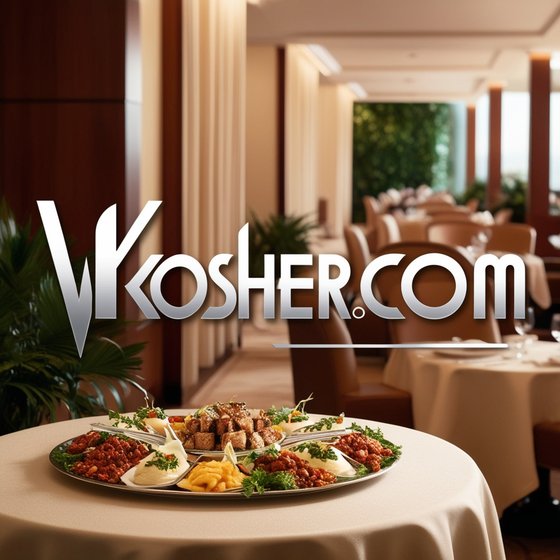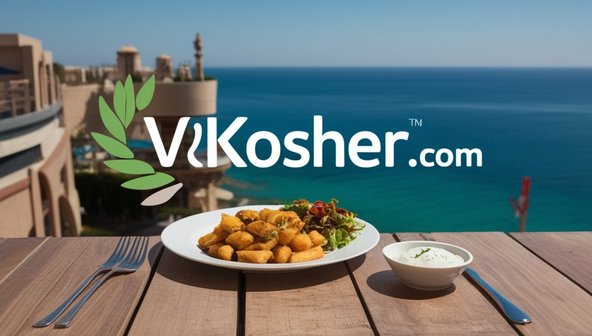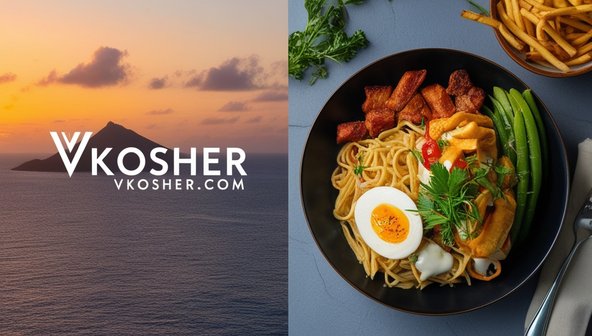Understanding Kosher Hanukkah
Hanukkah, the Festival of Lights, is a celebration that brings together Jewish communities around the world for eight nights of joy, reflection, and tradition. Central to this celebration is the observance of kosher dietary laws, which play a significant role in the festivities. Understanding what makes Hanukkah kosher goes beyond simply adhering to food restrictions; it encompasses the rich tapestry of rituals, customs, and symbolic acts that define this beloved holiday.
The Essence of Hanukkah
Hanukkah commemorates the rededication of the Second Temple in Jerusalem during the second century BCE. The story of Hanukkah is rooted in the Jewish victory over the Seleucid Empire and the miracle of the menorah, where a small quantity of oil, enough for one day, miraculously lasted for eight days. This miracle is the foundation of Hanukkah, and it is celebrated with the lighting of the menorah, special prayers, and, of course, festive meals.
Kosher Practices During Hanukkah
The concept of kosher, meaning "fit" or "proper" in Hebrew, is a critical aspect of Jewish dietary laws. These laws, derived from the Torah, dictate what foods are permissible and how they must be prepared. During Hanukkah, these practices are observed with particular care, ensuring that all foods consumed during the holiday align with kosher standards.
Traditional Hanukkah Foods
One of the highlights of Hanukkah is the food, particularly those fried in oil, symbolizing the miracle of the oil. Latkes (potato pancakes) and sufganiyot (jelly-filled doughnuts) are among the most popular Hanukkah treats. These foods are traditionally prepared in kosher kitchens, ensuring that all ingredients and preparation methods adhere to Jewish dietary laws.
In kosher cooking, meat and dairy are never mixed, and utensils used for meat cannot be used for dairy. Therefore, a kosher Hanukkah meal may include either meat or dairy dishes, but not both. For example, a dairy-based meal might feature cheese latkes or dairy-based sufganiyot, while a meat-based meal would exclude any dairy.
The Symbolism of Oil
The use of oil in Hanukkah foods is not merely a culinary choice but a deeply symbolic act. The oil represents the miracle of Hanukkah, where the menorah's oil lasted eight days instead of just one. By cooking foods in oil, Jewish families connect with this historical and religious significance, making the act of eating a form of spiritual observance.
Lighting the Menorah
The lighting of the menorah is perhaps the most iconic Hanukkah ritual. Each night of Hanukkah, one additional candle is lit until all eight are burning on the final night. This act of lighting the menorah is accompanied by prayers and blessings, creating a sacred atmosphere in the home.
The menorah itself must be kosher, meaning it adheres to specific guidelines. It must have space for nine candles—eight for each night of Hanukkah and one for the shamash, the helper candle used to light the others. The candles must be placed in a straight line, and each should be of the same height to ensure uniformity.
The Role of Family and Community
Hanukkah is a time for family and community, where the focus is on togetherness and the shared experience of faith. Kosher observance during Hanukkah is often a communal effort, with families coming together to prepare meals, light the menorah, and engage in traditional games like dreidel. These activities reinforce the bonds within the community and create lasting memories.
Kosher Hanukkah Around the World
While the basic tenets of Hanukkah remain consistent, the way it is celebrated can vary significantly around the world, influenced by local customs and culinary traditions. In each case, however, the observance of kosher laws remains a central theme, ensuring that the celebration is in harmony with Jewish values.
In Eastern Europe, for example, Hanukkah meals might include traditional Ashkenazi dishes like brisket or kugel, while in Sephardic communities, dishes such as bimuelos (fried dough balls) or keftes (meatballs) might be served. Regardless of the specific foods, the kosher laws governing their preparation and consumption are meticulously followed.
Modern Interpretations of Kosher Hanukkah
As with many religious observances, the way Hanukkah is celebrated has evolved over time. In contemporary Jewish communities, there is a growing interest in creating new traditions that align with modern lifestyles while still adhering to kosher principles.
This has led to the introduction of new Hanukkah foods that cater to diverse dietary needs, such as gluten-free latkes or vegan sufganiyot. These modern adaptations still respect kosher laws, ensuring that Hanukkah remains a holiday where tradition and innovation coexist.
The Spiritual Aspect of Kosher Observance
Kosher observance during Hanukkah is not just about following rules; it is a spiritual practice that connects individuals to their faith. By observing kosher laws, Jewish families honor their heritage and express their devotion to God. Each meal becomes an opportunity to reflect on the miracles of Hanukkah and to renew their commitment to living a life in accordance with Jewish teachings.
Challenges of Maintaining Kosher During Hanukkah
Maintaining kosher practices can present challenges, especially in a world where convenience foods and mixed-diet households are common. During Hanukkah, when food plays such a central role, these challenges can be even more pronounced.
However, many Jewish families take this as an opportunity to reaffirm their commitment to kosher observance, viewing it as a meaningful aspect of their faith. For those new to kosher cooking, Hanukkah can be a time of learning and growth, as they explore the rich traditions and practices that define Jewish cuisine.
The Impact of Kosher Certification
Kosher certification is a key component of ensuring that Hanukkah foods meet the necessary dietary standards. Products that carry a kosher certification have been inspected and approved by a rabbi or a kosher certification agency, which verifies that they meet all kosher requirements.
During Hanukkah, many Jewish families seek out kosher-certified products, from oil to pre-packaged latkes, to ensure that their meals are fully compliant. This certification provides peace of mind and allows families to focus on the joy of the holiday, knowing that their observance is in line with Jewish law.
The Future of Kosher Hanukkah
As the world continues to change, so too does the way Hanukkah is celebrated. The future of kosher Hanukkah will likely see further innovations in food, ritual, and community involvement, all while maintaining the core principles that make the holiday so special.
The rise of technology has already had an impact, with online resources providing easy access to kosher recipes, guidance on kosher observance, and even virtual menorah lighting ceremonies. These developments ensure that Hanukkah remains accessible to all, regardless of where they are in the world.
Conclusion: The Enduring Legacy of Kosher Hanukkah
Kosher Hanukkah is more than just a holiday; it is a celebration of Jewish identity, faith, and tradition. The careful observance of kosher laws during this time is a testament to the enduring commitment of Jewish families to their heritage. As Hanukkah continues to be celebrated around the world, the principles of kosher observance will remain a cornerstone of the holiday, ensuring that the lights of the menorah continue to shine brightly for generations to come.
